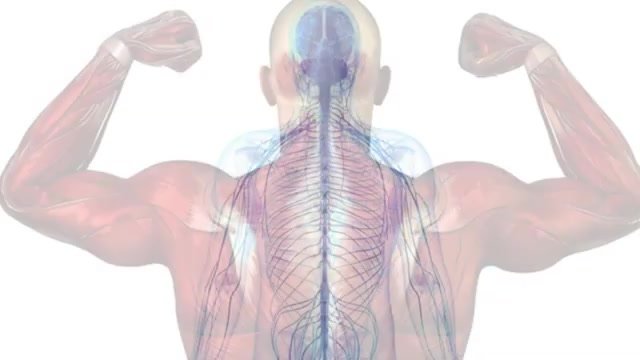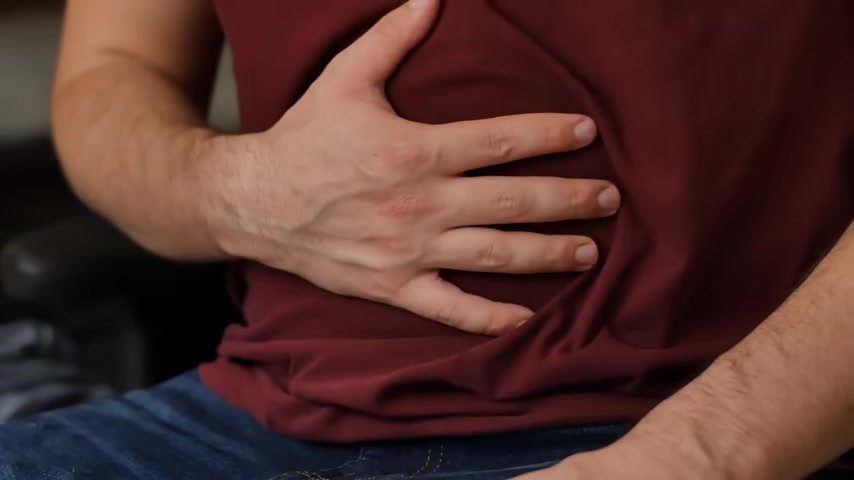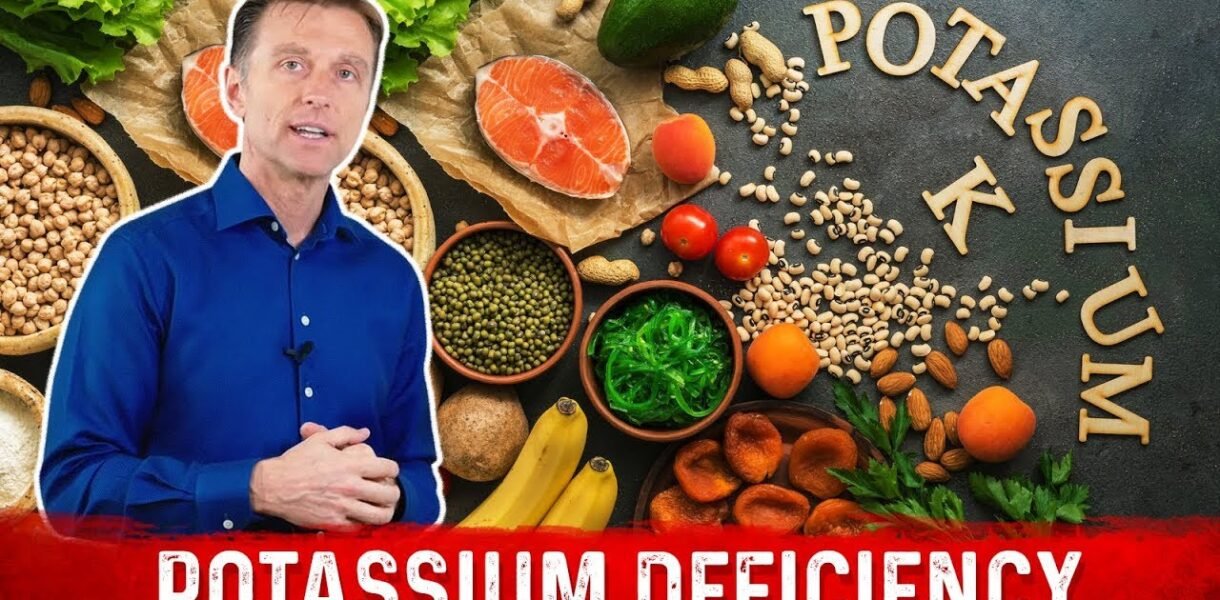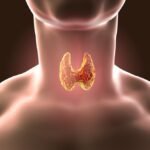Discover 5 uncommon signs and symptoms of potassium deficiency that you might be overlooking. Learn how to identify and address potassium deficiency with expert advice from Dr. Berg.
Understanding these uncommon symptoms can help you identify and address potassium deficiency more effectively. Learn how to ensure adequate potassium intake through diet and lifestyle changes to support your overall health.
5 Uncommon Signs of a Potassium Deficiency
So today I want to talk about 5 uncommon signs of a potassium deficiency .

A lot of people understand the potassium is involved with the heart , the rhythm of the heart , maybe blood sugars , nerve and muscle physiology .
But what they might not realize it’s involved in a lot of other things as well .
Energy metabolism , protein synthesis , and actually making muscle , glucose metabolism , the conversion of glucose to glycogen which is the storage form of glucose .
| Category | Details |
|---|---|
| Role of Potassium | Essential for muscle function, nerve transmission, and maintaining fluid and electrolyte balance. |
| Uncommon Symptoms of Potassium Deficiency | – Muscle Twitches: Involuntary muscle contractions and spasms. – Mood Changes: Irritability, anxiety, depression. – Mental Confusion: Difficulty concentrating, forgetfulness. – Persistent Fatigue: Ongoing tiredness even after rest. – Difficulty Breathing: Shortness of breath, respiratory issues. |
| Common Symptoms of Potassium Deficiency | Muscle cramps, weakness, fatigue, constipation, irregular heartbeats, tingling or numbness. |
| Causes of Potassium Deficiency | Excessive loss through urine or digestive tract (diuretics, diarrhea, vomiting), poor dietary intake, excessive sweating, chronic kidney disease, medications, hormonal imbalances, conditions like diabetes. |
| Health Effects of Deficiency | Increased risk of hypertension and cardiovascular diseases, muscle paralysis, poor digestion, fatigue, respiratory failure, cardiac arrest. |
| Treatment for Low Potassium | Increase dietary intake of potassium-rich foods, oral potassium supplements, intravenous potassium for severe cases, address underlying causes (medications, chronic conditions). |
| Potassium-Rich Foods | Bananas, avocados, leafy greens, beans, nuts, seeds, potatoes, fish. |
| Dr. Berg’s Recommendations | Monitor for signs of deficiency, regular check-ups with healthcare providers, maintain a balanced diet for overall health. |
| Importance of Monitoring Levels | Regular check-ups with healthcare providers, monitoring for signs of deficiency, maintaining a balanced diet for overall health. |
Symptoms of a Potassium Deficiency
Number 1 of the biggest symptoms of a potassium deficiency is fatigue .

You just you just lose your energy .
Number 2 , low endurance or low stamina .
You just run out of gas fast especially when you’re working out or climbing stairs .
So you basically just run out of energy a lot quicker than you should .
Number 3 , increase urination at night .
So many times we’re thinking diabetes or prediabetes , but it could be a potassium deficiency .
But that potassium deficiency could be coming because you’re diabetic , because insulin resistance is involved .
And when you have insulin resistance , you can’t really absorb potassium and magnesium that well .
And just as a side note , it’s very very important to take extra potassium and magnesium if you have diabetes or you have insulin resistance .
That will actually help the urination at night .
Next 1 is constipation .

Because of the necessity of potassium involved in the smooth muscle , that forms the colon .
And number 5 , paralysis after a high carb meal .
When you consume a lot of carbohydrates , your need for potassium goes way up because potassium is involved in not just energy metabolism , but glucose metabolism as well .
And you have the shift of this electrolyte out of the muscle cell getting a temporary paralysis .
Before I knew anything about nutrition I experienced paralysis after a high carb intake
And this relates to even myself because when I was getting married 29 years ago , Karen and I went to shop for , wedding cakes .
So I don’t know .
We were sampling all these cakes .
This is before I knew anything about nutrition .
And , then we ended up at an Italian restaurant , and we had all carbs , pizza , pasta .
I was doing wine , that was really sweet .
And then right at the end , I noticed that they were actually , taking these carts of all these dessert samples that would come around to the table .
And they mentioned , would you like to sample any of these before we toss these ?
And of course , in my mind , I don’t wanna waste that good food .
So we started sampling all this sugar , all these desserts for probably another half hour .
It was really bad .
So that was a high carb meal .
As we’re driving home , I noticed my heart is pounding like crazy .
I get into the house and I feel like faint .
I feel tired .
My muscles are weak like my legs are they feel like , like cement .

I didn’t sleep 1 minute that night .
My heart was racing .
I was totally awake .
So that might have not have been a paralysis , but it was definitely a side effect from doing too many carbs .
So and also realize that you need 47 100 milligrams of potassium , and some people need a little bit more especially after doing the hardcore workouts .

And you would get this mainly from these things called vegetables .
Even though those are carbohydrates or low with potassium , They’re actually low in sugar and so that’s what you would consume to build up your potassium reserve .
key Points:
In this topic, I explain 5 uncommon signs of a potassium deficiency. A lot of people understand that potassium is involved with heart rhythm, nerve physiology, muscle physiology, and blood sugar. But what you might not know is potassium is also important for energy metabolism, protein synthesis, and glucose metabolism to convert glucose to glycogen, the stored form of glucose.
Here are the 5 signs of a potassium deficiency:
- Fatigue
- Low endurance, especially when working out or climbing a set of stairs
- Increased urination at night; often we think it’s prediabetes or diabetes when it could be a potassium deficiency. But the deficiency could be happening because of insulin resistance or becoming diabetic. With insulin resistance, you can’t absorb potassium (or magnesium) very well. If you have it, or diabetes, it’s important to take extra potassium and magnesium.
- Constipation
- Paralysis after a high carb meal. After eating a lot of carbs your need for potassium goes way up. Potassium, an electrolyte, will shift out of your muscle cell. Or your heart may pound, and you’ll feel faint and very tired. You may have weak muscles. I experienced this many years ago before I knew anything about nutrition.
You need 4700 milligrams of potassium daily, or even more if you’re doing hardcore workouts. You get potassium from vegetables. Even though they have carbohydrates they’re low in sugar and high in potassium. Eat them to build your potassium reserve and avoid a potassium deficiency.
DATA:
https://www.ncbi.nlm.nih.gov/books/NBK482465
Download My FREE guide: First Signs of a Nutrient Deficiency
FAQ:
What are the symptoms of potassium deficiency?
Symptoms of potassium deficiency, also known as hypokalemia, include muscle cramps, weakness, fatigue, constipation, irregular heartbeats, tingling or numbness, nausea, vomiting, bloating, and abdominal pain. Severe cases can lead to more serious health issues such as paralysis, respiratory failure, and cardiac arrhythmias.
What happens if you are low in potassium?
If you are low in potassium, you may experience symptoms like muscle cramps, weakness, fatigue, constipation, and irregular heartbeats. Severe potassium deficiency can result in serious health complications, including paralysis, respiratory failure, and life-threatening cardiac arrhythmias. It is important to address low potassium levels promptly to prevent these severe health issues.
What is the most common cause of low potassium?
The most common cause of low potassium (hypokalemia) is excessive loss of potassium through urine or the digestive tract. This often occurs due to diuretic medications, chronic diarrhea, or vomiting. Other causes include poor dietary intake, excessive sweating, and certain medical conditions like chronic kidney disease and hormonal imbalances.
How can I raise my potassium level quickly?
To raise your potassium level quickly, consume potassium-rich foods such as bananas, avocados, oranges, spinach, sweet potatoes, beans, and fish. If dietary changes are insufficient or if you need a faster solution, potassium supplements can be taken under the guidance of a healthcare provider. In severe cases, intravenous potassium may be administered by a medical professional.
What are unusual symptoms of low potassium?
Unusual symptoms of low potassium can include muscle twitches, mood changes, and mental confusion. Some individuals may also experience persistent fatigue, tingling or numbness in the extremities, and difficulty breathing.
What are signs and symptoms of abnormal potassium?
Signs and symptoms of abnormal potassium levels, whether too high or too low, include muscle cramps, weakness, fatigue, irregular heartbeats, nausea, and tingling or numbness. Severe cases can lead to paralysis, respiratory failure, and cardiac issues.
What is an early symptom of potassium deficiency?
An early symptom of potassium deficiency is muscle cramps or spasms. These cramps often occur in the legs and can be accompanied by general muscle weakness and fatigue.
What are the clinical manifestations of hypokalemia?
The clinical manifestations of hypokalemia (low potassium) include muscle weakness, cramps, fatigue, constipation, irregular heartbeats, tingling or numbness, and in severe cases, paralysis and respiratory failure.
What are the 10 signs of low potassium
- Muscle cramps
- Weakness
- Fatigue
- Constipation
- Irregular heartbeats
- Tingling or numbness
- Nausea
- Vomiting
- Bloating
- Abdominal pain
Symptoms of low potassium in females
Symptoms of low potassium in females include muscle cramps, weakness, fatigue, constipation, irregular heartbeats, tingling or numbness, and mood changes. Women may also be more prone to muscle spasms and cardiovascular issues due to hormonal fluctuations.
Is low potassium a sign of cancer?
Low potassium is not typically a direct sign of cancer, but it can occur in cancer patients due to factors like chemotherapy, poor nutrition, or hormonal imbalances. If you have concerns about potassium levels and cancer, consult with a healthcare provider for a thorough evaluation.
Can you die from low potassium?
Yes, severe low potassium levels can be life-threatening. It can lead to serious health issues such as heart arrhythmias, paralysis, respiratory failure, and cardiac arrest. Immediate medical attention is necessary if severe hypokalemia is suspected.
What is the most common cause of low potassium?
The most common cause of low potassium (hypokalemia) is excessive loss of potassium through urine or digestive tract, often due to diuretic medications, chronic diarrhea, or vomiting. Other causes include poor dietary intake, excessive sweating, and certain medical conditions.
Potassium deficiency symptoms
Symptoms of potassium deficiency include muscle cramps, weakness, fatigue, constipation, irregular heartbeats, tingling or numbness, nausea, vomiting, and abdominal pain. Severe deficiency can lead to paralysis and respiratory failure.
How long does it take to recover from low potassium?
Recovery from low potassium depends on the severity of the deficiency and the treatment approach. With proper dietary changes and supplementation, mild hypokalemia can improve within a few days to weeks. Severe cases may take longer and require ongoing monitoring by a healthcare provider.
Symptoms of low potassium in the elderly
Symptoms of low potassium in the elderly include muscle cramps, weakness, fatigue, constipation, irregular heartbeats, and confusion or mental fog. Elderly individuals may also be at higher risk for cardiovascular issues and severe complications due to existing health conditions.




